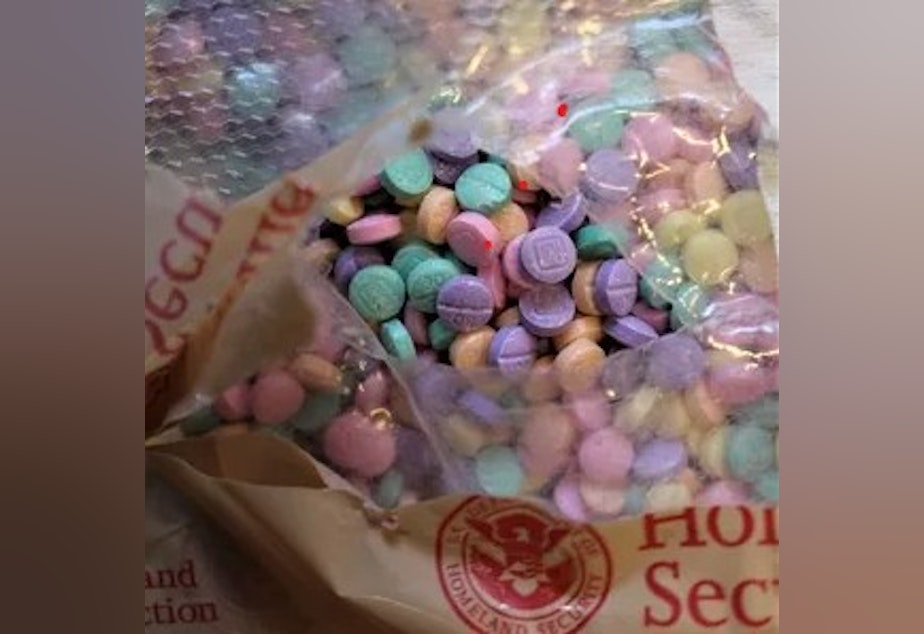Mayor Harrell targets Seattle’s fentanyl crisis response in new executive order

Seattle Mayor Bruce Harrell announced an executive order on Monday to address the growing fentanyl crisis. Last year alone, the drug was involved in more than 700 deaths in King County. KUOW’s Kim Malcolm talked with reporter Casey Martin about what’s in the order.
This interview has been edited for clarity.
Casey Martin: There are two main prongs of this order. The first one is a focus on law enforcement. Mayor Harrell said he's directed Seattle police to focus on people who sell illegal drugs like fentanyl. He says the city will put together a task force to come up with new ideas to target drug dealers. That'll be made up of the city attorney's office and state and federal agencies. Seattle Police Chief Adrian Diaz said the focus is on drug cartels and large organizations that bring drugs into the Seattle area.
The other prong is treatment and health. The Seattle Fire Department will expand its team that responds to overdoses. They go out with case managers and build relationships with folks. Seattle Fire Chief Harold Scoggins said these case managers will follow up day after day to ensure these folks are connected with the services they need, and hopefully get into some sort of treatment program that would help them.
Seattle will also launch a program to provide incentives to people who join and stay in some sort of substance treatment program. Incentives would include things like small gift cards.
Kim Malcolm: One issue has been access to treatment. Does the order say anything about that?
Sponsored
Long term, the mayor says that the city is considering funding to work with addiction specialists at the University of Washington. The idea is to start a post-overdose diversion facility, essentially a clinic for people to go to after they've survived an overdose. This would be a place for emergency responders to take folks to recover, to get medications, and to seek out treatment. This is a bit of a way off. It would need funding and a site and a whole bunch of staffing.
When it comes to overdoses right now, the mayor said they will explore funding for additional naloxone access. That's a very popular medicine that can reverse opioid overdoses.
What did the mayor have to say about the timing? Why is this order needed now?
The mayor highlighted high rates of overdoses and deaths around Seattle due to drugs like fentanyl:
“Five hundred eighty-nine overdose deaths in Seattle in 2022, with the majority attributed to fentanyl and methamphetamines; compared to only 342 in 2021. But even 342 was alarming. That was an increase of 72%. Overdose is the leading cause of unintentional fatal injury in King County.”
Sponsored
He called these numbers "tragic" and said that this region is facing a real crisis. This has become common. We've seen the use on mass transit. We see fentanyl use in public places. For law enforcement, recently there have been some large drug busts. Many involve drug cartels and police have seized thousands of fentanyl pills — enough to kill every person in King County.
How much money is the city going to put behind this effort?
That's still getting worked out. A lot of these ideas are pilot programs or future ideas. These will take more staffing and they will have to find exactly where the money is coming from. The mayor said he is rolling out more ideas this summer; he said to stay tuned.
Listen to the interview by clicking the play button above.






